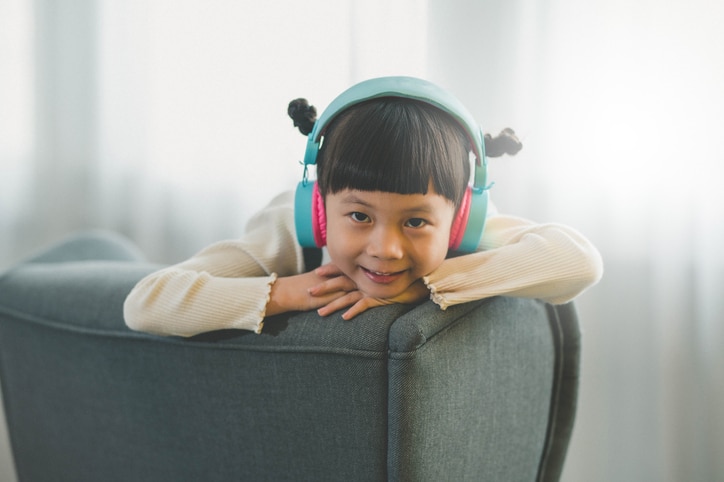On a dark, gloomy night a small child confronts a three-horned, red-eyed monster. That’s the opening scene of a tale by eight-year-old Brisbane boy Henry Levitt, voiced by well-known Australian actors in the latest season of the StoryKids podcast.
Episodes are written by Australian children – who’ve sometimes had to confront some monsters of their own.
“Henry has dyslexia and dyspraxia and finds it very difficult to read and write, but he is an incredible storyteller,” StoryKids creator Amelia Christo told AAP.
“I find that really moving, because I think: ‘there’s a kid we need to hear from’.”
She said Henry managed to tell his story by dictating it to his mother as she typed it out, before being voiced by comedian Cal Wilson.
In its three seasons the podcast has featured dozens of stories, including an episode by a child in detention on Christmas Island, another by a child with Down syndrome, as well as stories from kids living in South Australia’s remote APY Lands.
The tales are brought to life by some of the country’s biggest names, the likes of Tim Minchin, Adam Goodes, Yumi Stynes and Andy Griffiths.
Ms Christo also interviews each author, asking how they came up with their idea, and why they told their story the way they did.
The whole experience gives the growing list of StoryKids writers a new confidence, according to Ms Christo, as well as helping young listeners build their vocabulary, and improve their attention and memory.
“Most kids will discuss or make or tell their own stories in response to an episode … it’s not a dull consumption, it’s an active engagement,” she said.
She began developing StoryKids in 2018 with fellow performer Verity Hunt-Ballard, after they realised there were very few Australian podcasts available for their own primary-school aged children.
But it was only when COVID-19 hit that the pair realised they’d hit on a lockdown diversion parents really needed, according to Ms Christo.
“We are crying out for solutions that don’t involve staring at a screen,” she said.
Melbourne City Council funded the first season of the show, with later seasons produced in partnership with the Australian Literacy and Numeracy Foundation.
The foundation, along with other literacy and welfare bodies, this week launched a proposed national strategy for early language and literacy.
One in five Australian children are behind in their language skills before they start school, according to the the foundation, while 44 per cent of adults lack sufficient literacy to cope with the everyday demands of life and work.
“Every parent wants their children and the children of Australia to be literate, well-educated and great communicators,” Tom Calma from the foundation said when launching the plan.
The strategy looks at family support, early childhood education, and specialist help.
AAP



